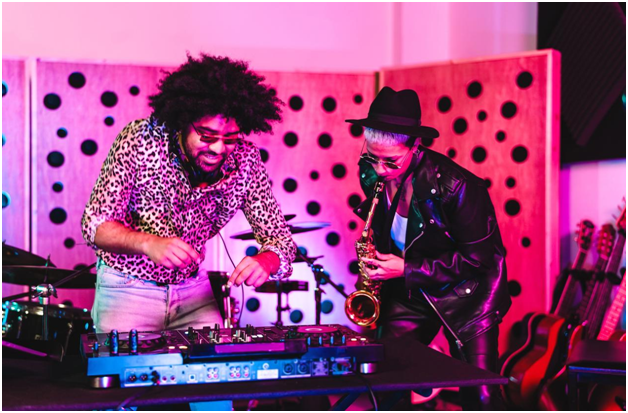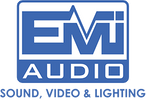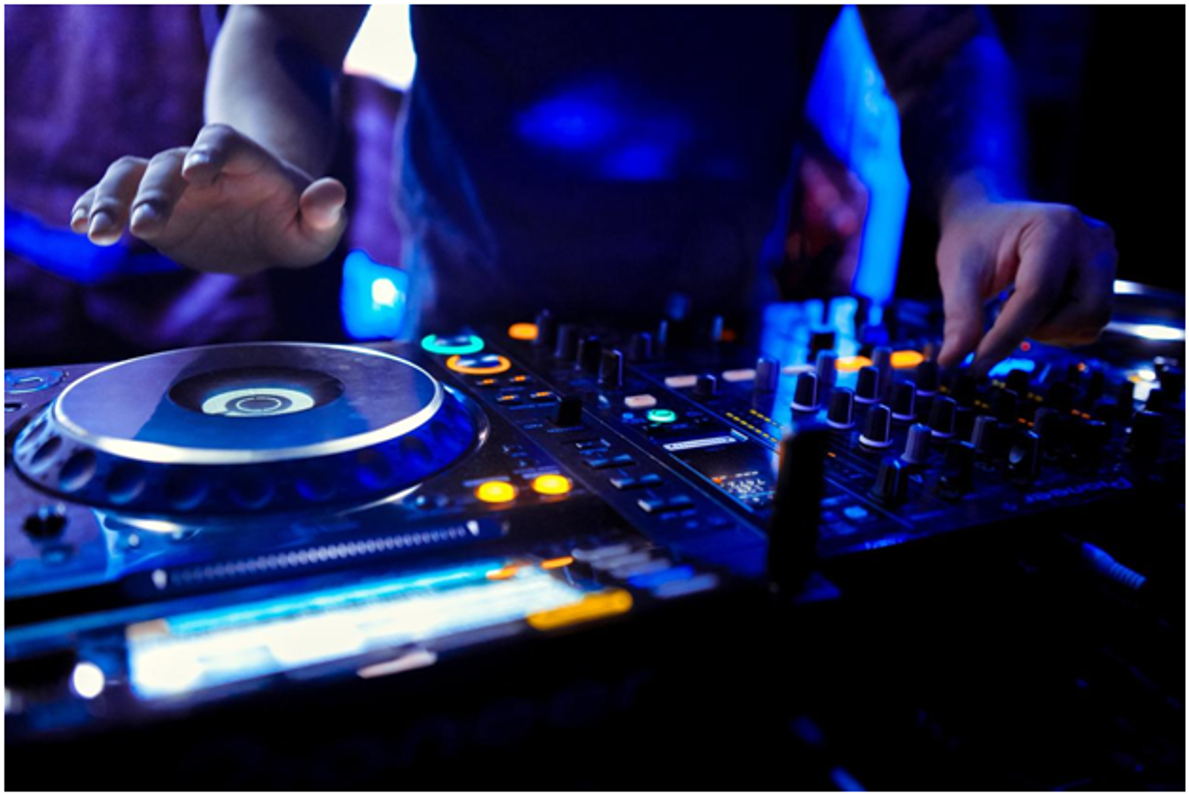3 Reasons You Still Need A Mixer Plugged Into Your Pioneer DJ Controller
The days of carrying a pair of heavy (and expensive) turntables, a mixer, and a crate full of vinyls to get a party started are long gone. Today, Pioneer DJ controllers are all in one deck solutions for both beginners and pros who enjoy mixing tracks and keeping the juices flowing on the dance floor. However, the transition to this more compact format was not something we could call “smooth”.
Gearing up for DJing went through a slow transition where turntables and faders were replaced by a mouse and keyboard for quite some time. This had the advantage of making DJ careers more affordable as all you needed was a laptop and a piece of software that allowed you to start a party by hitting a space bar, and scratch turntables by dragging a pointer. DJ software became incredibly popular, allowing us to manipulate MP3 files the same way we could with turntables. I remember mixing tracks together through virtual cross faders, EQs, effects, and the whole shebang.
However, as groundbreaking as that was at the time, music creators and entertainers were not convinced that screens and gimmicky peripherals could replace the special feeling you get from manipulating a real instrument, so the need for DJ controllers was born.
A DJ controller is a piece of equipment that natively communicates with your DJ software, allowing you to directly control every aspect of your music, and seamlessly create incredible mixes with much more ease than that of old-school-style, all-in-one decks. They have evolved overtime, allowing musicians and creators to completely reprogram every button so they always have the features they need at hand.
Recent models, such as most Pioneer DJ controllers, are considered all-in-one decks as they not only provide all the features DJs need for effective crowd control on the dance floor. They also dub as small mixers, rendering the use of dedicated DJ mixers redundant for entertainers who completely rely on their tracks for putting on a great show. DJ controllers come with several connectors that allow you to plug in a couple of line inputs, a USB cable, and maybe a microphone, giving music enthusiasts all they need to give the masses what they want with a few flicks of their fingers.
On the other hand, dedicated DJ mixers have remained relatively unchanged over the years, They often sport a solid construction and allow for a ton of connectivity for a wide variety of sound sources, and they each get a dedicated channel for tighter control. But they are generally limited in their features because their only job is to reroute signals, which is something DJ controllers can do to a certain extent.
However, experienced DJs and sound masters know that DJ mixers still play a huge role when it comes to bringing the house down. They bring a lot in terms of versatility and power, and make all the difference in the world if you need more control during your gigs. Here are three reasons you should get a DJ mixer to complete your setup.
You Want To Expand Your Sound Range
While Pioneer DJ controllers can do everything a DJ software can do and then some, you might want to add some extra flavor to your track mixing cake. A DJ mixer allows you to increase your scope by the Nth power by granting you access to other professional instruments and devices, such as synthesizers, MIDI instruments and pads, old-school and heavy vinyl turntables, or even guitar FX loops to increase your sound range. A DJ mixer assigns a dedicated channel to every instrument or source, each with its own EQ and effects for more granular control of your sound on stage.

You Share The Stage With Other Musicians
Many event planners struggle with one vital decision: should I book a band or a DJ?
This might have been grounds for a feud between the two groups as they are technically competing for gigs. However, the creative nature of our trade ended up imposing its logic, and now many DJs today work in collaboration with other musicians to create incredible music sets that keep crowds interested and energized. Due to the stationary nature of being in front of a deck, DJs take a more prominent role as they not only control the tune, tempo, and mood of the performance. They often are also in charge of sound levels and instrument prominence, but DJ controllers have very limited connectors and can´t handle all the inputs needed to hold the reins of a full band. A DJ mixer gives the DJ control over vital aspects of the performance normally left in the hands of a sound engineer.
It's Your Party And You DJ If You Want To
Venue owners and many DJ crews know the importance and power of having a professional mixer paired with a powerful and transparent PA system. Having complete control over the whole sound system is the best way to make sure the whole event is a success. Being stuck behind the faders all night might not sound attractive to some, but many love the idea of making sure everyone in the party is having uninterrupted entertainment without experiencing any drastic drops or surges due to setup changes. An independent DJ mixer can keep all your sound sources at the desired level, and allow you to jump right into your Pioneer DJ controller without missing a single beat anytime you sense your audience is ready for a fix.
Being a DJ today requires a lot more than basic musical intuition. You need the right gear and a basic understanding of how your components can work together in order to give your audiences exactly what they want and keep ears and eyes interested in what's happening on your deck.
If you want to learn more about the best Pioneer DJ Controllers and Mixers, or are looking for the best equipment for expanding your musical and sound range, browse through our online catalog or visit our store located in the Minneapolis/Saint Paul area.
Recent Posts
-
New Rental Gear is Here! Check out what we added.
MESA MEDIA MK2 PROX STAGE Q 2'x6' AND 2'x4' ROK-IT STANDS TRIPOD STUDIO BOOM CHAUVET EZ LINK PAR Q6 …May 28th 2025 -
Evolve 70 & 90 are on display and ready to demo!
Pre-order today and lock in your order! …May 7th 2025 -
Spring is sprung...look what it brung
…Mar 4th 2025




